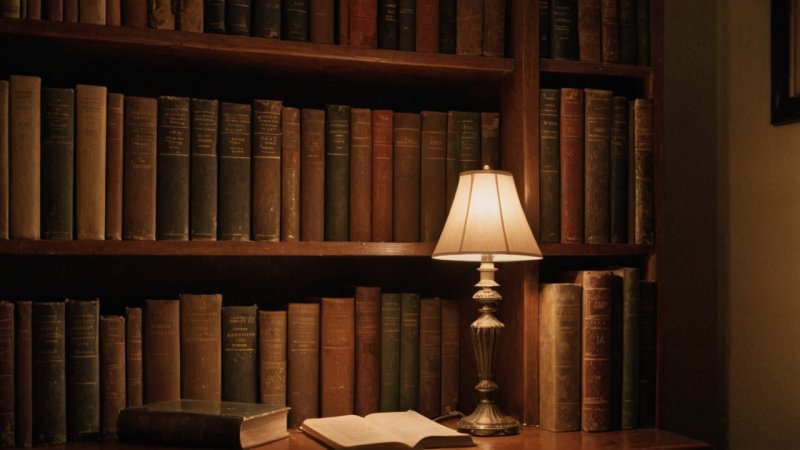The world of mystery novels is rich with intrigue, suspense, and unforgettable characters, drawing readers into a labyrinth of clues and red herrings. From the moody atmosphere of Victorian London to the serene landscapes of the English countryside, classic mystery novels have laid the foundations of the genre we cherish today. These novels not only entertain but also provoke thought, challenge perceptions, and offer a glimpse into the human psyche. In this exploration, we will delve into ten classic mystery novels that have not only shaped the genre but also left an indelible mark on literature itself.
The Murders in the Rue Morgue by Edgar Allan Poe
Often credited as the first modern detective story, Edgar Allan Poe’s The Murders in the Rue Morgue introduces readers to C. Auguste Dupin, a character who would inspire countless detectives to come. The story revolves around the brutal murder of two women in Paris, where Dupin uses his analytical skills to unravel the mystery. Poe’s innovative narrative structure and the emphasis on rational deduction are hallmark traits that define the genre and set the stage for future works.
The Hound of the Baskervilles by Arthur Conan Doyle
Perhaps the most famous of Sherlock Holmes’s adventures, The Hound of the Baskervilles weaves a tale of supernatural elements and gothic horror. Set on the desolate moors of Devonshire, this novel combines mystery with suspense, as Holmes investigates the legend of a phantom hound. Doyle’s brilliant characterization and atmospheric setting have made this work a timeless classic that continues to captivate readers.
And Then There Were None by Agatha Christie
Agatha Christie is often regarded as the queen of mystery, and And Then There Were None is a shining example of her genius. Ten strangers are lured to a secluded island, where they are systematically murdered in accordance with a chilling nursery rhyme. Christie’s masterful plotting and the clever twists throughout the narrative keep readers guessing until the very last page, solidifying her legacy as the best-selling novelist of all time.
The Maltese Falcon by Dashiell Hammett
With its hard-boiled detective and intricate plot, The Maltese Falcon is a cornerstone of the noir genre. Sam Spade, the protagonist, navigates a world filled with deceit, betrayal, and murder as he pursues a priceless statuette. Hammett’s sharp dialogue and complex characters introduced a new level of realism to mystery fiction, influencing the genre’s development for decades to come.
Rebecca by Daphne du Maurier
Rebecca is more than just a mystery; it’s a psychological thriller that explores themes of identity, jealousy, and the past. The story unfolds through the eyes of an unnamed narrator who becomes embroiled in the haunting legacy of her husband’s first wife, Rebecca. Du Maurier’s atmospheric prose and the suspenseful unraveling of secrets offer readers a chilling and unforgettable experience that transcends traditional mystery storytelling.
The Big Sleep by Raymond Chandler
Raymond Chandler’s The Big Sleep is a quintessential work of detective fiction that introduces the iconic private investigator Philip Marlowe. Set in 1930s Los Angeles, the novel is a labyrinth of twists and turns, filled with a cast of morally ambiguous characters. Chandler’s prose is infused with wit and sharp observations of society, establishing a new standard for character-driven mysteries that resonate with readers today.
Ten Days That Shook the World by John Reed
While not a traditional mystery novel, John Reed’s Ten Days That Shook the World presents a compelling narrative of the Russian Revolution, woven with elements of political intrigue and suspense. As a firsthand account, Reed’s work is a thrilling exploration of historical events that shaped the world, showcasing how mysteries extend beyond fiction into real-life enigmas that continue to captivate and inspire.
In the Woods by Tana French
In contemporary literature, Tana French’s In the Woods stands out as a modern classic that revitalizes the mystery genre. Blending psychological depth with a haunting narrative, the novel follows detective Rob Ryan as he investigates a young girl’s murder in a small Irish town, a case that echoes his own traumatic childhood. French’s lyrical writing and intricate character development push the boundaries of traditional mystery, making it a must-read for fans of the genre.
The Woman in White by Wilkie Collins
Another pioneer of the mystery genre, The Woman in White intertwines elements of gothic fiction and psychological thriller. The story unfolds through multiple perspectives, creating a rich tapestry of suspense and intrigue as characters navigate dark secrets and deceit. Collins’s innovative narrative structure and compelling plot have influenced countless authors, making this novel a cornerstone of mystery literature.
The Secret Adversary by Agatha Christie
In her first Tommy and Tuppence novel, The Secret Adversary, Agatha Christie introduces readers to the dynamic duo who would become beloved characters in her oeuvre. Set in post-World War I England, the novel follows the pair as they become embroiled in a dangerous conspiracy. Christie's sharp wit and engaging storytelling highlight her ability to create memorable characters while maintaining a gripping mystery, reinforcing her status as a master of the genre.
Conclusion
The evolution of the mystery genre is a testament to the creativity and ingenuity of the authors who have come before us. From the analytical prowess of Poe's Dupin to the psychological complexities in Tana French's work, these classic novels have shaped the foundation of mystery literature. They invite readers to ponder the unsolved, to embrace the unknown, and to find joy in the art of deduction. As we continue to explore the vast landscape of mystery novels, these ten works remain essential reading for anyone with a passion for solving puzzles and unraveling secrets.






